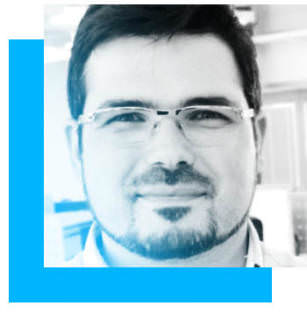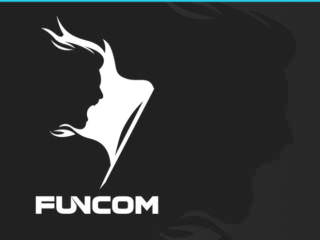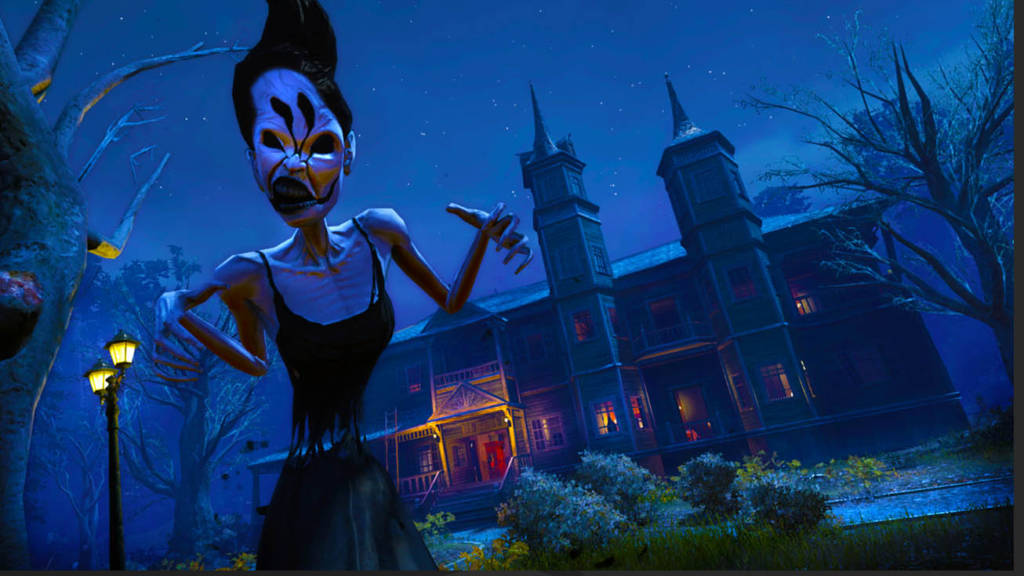
Twelve years ago, when massively multiplayer online (MMO) games were growing to their peak popularity, Funcom was one of the big names in the industry with the success of the sci-fi game Anarchy Online. But in 2008, the 680-person company worked on the high-profile MMO game Age of Conan, which had a disappointing reception at launch.
That marked the beginning of a decline that was partially staved off by the release of games such as The Secret World in 2012, which was relaunched earlier this year as The Secret World Legends.
It turns out The Secret World wasn’t the only part of Funcom to be remade. A decade of hardship helped reshape the company. In August, the considerably leaner company decided to show that change to the world by announcing a rebranding, complete with a new logo. Instead of tying its fate to single big-budget projects, the now profitable company is working on multiple smaller scale games. The Park, a horror game that released in 2015, may have been an early indication of this change—being a short, single-player experience instead of a giant MMO.
Funcom is currently developing Conan Exiles, an open-world survival game set in the Conan lore, which is currently in Early Access with an expected launch in 2018.
Funcom CEO Rui Casais sat down with AListDaily to discuss the changes that have come to the 24-year-old company, what the rebrand means and how it is marching steadily to the future.
What convinced Funcom that it was time to rebrand itself?
The old Funcom branding and logo was established in 2005 when the company went public, and it was meant to reflect a relatively large organization focused on triple-A MMO titles like Age of Conan. It has been 12 years, and we are now a smaller and more nimble group of people—reinventing what the company is and focusing on different types of games. While we internally know this quite well, the outside world was still seeing the old Funcom. New branding doesn’t change a company, but we were essentially in a situation where the company had gone through major changes and we had redefined ourselves in every way, but we were still wearing the same old uniform. This rebranding is a small but important step in making sure our external image matches who we are internally.
How would you describe the Funcom brand now?
The new Funcom brand is close to the gamers and the people who work here. Our priorities have changed and so has the approach we’re taking to making games. We’ve gone from being a 500- to 600-person company working for five-to-seven years on a single big-bet project, to being a considerably more agile studio with 120 developers working on more than one game at a time. We want the Funcom brand to be synonymous with exciting ideas and new concepts. We’ve been called many things, but boring isn’t one of them. We’ve always had a reputation for taking creative risks and creating games with unique personality and soul.
 What does the new logo represent for the company?
What does the new logo represent for the company?
The new logo represents both our history and our future. We’ve been through many battles and our flag isn’t pristine anymore, but we still charge into battle with energy and passion. Players can’t expect to feel indifferent towards the games we make. We’ve earned our battle scars through over 24 years of highs and lows making games. Today, we are ambitious, determined and moving forward.
Is it easier to promote numerous smaller scale games compared to large, single projects?
It’s hard to quantify how easy or hard it is to promote something. There is heavy competition in all segments these days. For smaller scale games, you have to rely more on virality factors as the marketing budgets are smaller, so I would say it’s harder to break through the noise for smaller games due to that.
How do existing games such as Secret World Legends fit into Funcom’s strategy?
We love our older games like Anarchy Online—which we still operate after 16 years—and we try to do all we can to keep them energized. Secret World Legends is an example of that, where we felt like there were many players out there that would enjoy The Secret World, so we took the time to adapt and modernize the game and relaunch it as Secret World Legends. Existing games are an important part of the company’s revenues and we will continue operating them as long as viable, hopefully for many long years to come.
PRESS RELEASE: Secret World Legends Concludes Its Epic Tokyo Storyline In Massive New Update | https://t.co/IBKqFpM4wA
— Funcom (@Funcom) October 11, 2017
What did you learn from launching The Park that you’re using to promote Conan Exiles?
The Park was our first non-MMO game in many years. It was also our first Unreal Engine 4 game and our first ‘new-generation’ console game. [Additionally], it was the first game where we actively pursued opportunities for YouTube and Twitch coverage. We leveraged that experience on both production and PR and marketing directly for Conan Exiles. The approach to promoting games in 2017 is obviously significantly different from when we did with Age of Conan ten years ago. It’s not just the fact that influencers are another avenue for promotion and visibility, but the way in which gamers discover new games have changed significantly, and if you’re not visible in those channels you’re missing out on a lot of people finding out about your game. Of course, the advent of influencers has also caused a shift in how many people consume their game experiences, and that’s particularly true for games like The Park—a one- to two-hour long-linear adventure, and millions of people ended up experiencing the story. Not because they played it themselves, but because they watched their favorite influencer play it from start to finish.
What is Funcom’s strategy when it comes to standing out in the PC and console gaming space?
We always punch a bit above our weight, and we always aim to push the boundaries. We’re in the strange middle market between indie and triple-A, where we end up competing with both types of games for attention—although in very different ways. So, we try to make sure the players understand what we’re trying to do and that we’re not that big. It’s tough, but we hope to continue to succeed through a combination of using strong IPs, pushing the boundaries on game mechanics and content, and making sure we utilize PR and marketing in the best way possible to build awareness for what we’re creating.
What do you want people to imagine when they hear about a new game from Funcom?
Ideally, I want people to be curious and to think, ‘Oh, I want to see what those guys did this time around.’ We will make different games in different settings, but we will strive for innovation within familiarity. We will strive for catching people’s attention in this busy and fast-changing space while still retaining the gameplay they are comfortable with. One of the things we often hear is that you can say what you will about Funcom games, but they always do something different. We’re excited about that, and we want our games to shake things up. We just need to get much better at making sure they are both innovative and polished, and that’s what we’re putting all our efforts into now as we wrap up the Early Access phase for Conan Exiles and prepare it for full launch.

